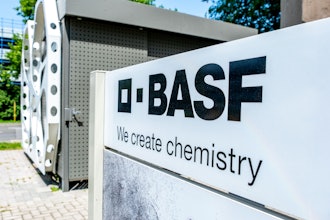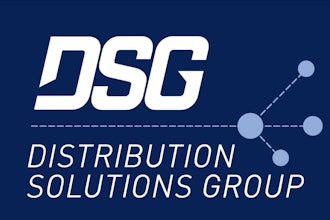Almost all distributors run into contract issues on a regular basis, including issues arising out of the classic reference of a “battle of the forms” — where no master or framework agreement exists and disputes arise about what terms and conditions govern a party’s relationship. A typical battle of the forms occurs when a customer places a purchase order and the seller (distributor) sends a confirmation or acknowledgement but each contain fine print or boiler plate terms and conditions (often on the backside of the document) that contain substantially differing terms or conditions. Hence, when a goods (not services) purchase transaction goes awry, an oft litigated question is exactly what are the terms of engagement? In other words, what are the specific terms and conditions of the “goods purchase contract?”
The answer to this question is tied up in a version of the 1952 Uniform Commercial Code (UCC) applicable to a distributor’s dispute, the United Nations Convention on Contracts for the International Sale of Goods (CISG) — which I discussed in the January/February 2016 issue of Industrial Distribution, and the common law, to the extent the parties are not “merchants” — defined generally in the UCC as a business that deals in goods of the kind or otherwise holds itself out by occupation as having knowledge or skill peculiar to the practices or goods involved in the subject transaction). At common law, the “mirror image rule” controlled the answer to the question of the battle of the forms — if one party made a contractual offer, and the other accepted, then a meeting of the minds existed and a contract was formed. Whether in writing or orally. And, the mirror image rule still has some applicability, but only if not involving merchants — as such, distributors should be cautious not to lose sight of how the disputes can be avoided.
A Real Case As To A Disputed Goods Transaction
The reality is that most goods transactions are conducted by electronic transmission and documents are transmitted back and forth, without necessary scrutiny. Often times, it does not matter as the parties don’t have and/or resolve any disputes if some issues arise (e.g., a warranty claim).
A pending litigation (which I am spearheading) describes a major goods transaction dispute. In short, a U.S.-based supplier of certain equipment contracted with a third-party to design and test certain printed circuit boards (PCBs). The parties dropped the ball in terms of executing a governing framework agreement and thus, their contract is based on events that were negotiated in the 2008 to 2009 timeframe, but only e-mails and a course of conduct confirm this contract.
A contract can be formed under the UCC based on a course of conduct and/or consistent writings; conversely, a substantial legal question exists as to whether the CISG even applies to this case (which likely would help the seller). To boot, the agreement was a “requirements contract,” meaning only the supplier was manufacturing the subject PCBs for the purchaser, pursuant to a complex set of terms designed to address just-in-time inventory management, including a consignment warehouse component.
As each of the purchaser’s requirements were manufactured, including anticipated inventory and ultimately shipped to the consignment warehouse, the buyer issued a blanket purchase order to facilitate the transaction — confirm cost and facilitate invoicing and payment obligations when goods were “drawn down” by the purchaser under the consignment agreement.
This arrangement went on for a few years, and after an acquisition by the purchaser, the purchaser started to send new purchase orders, with onerous terms and conditions attached. The seller, likely due to the fact that the purchase orders were submitted through a secure web-portal that the purchaser used, did not notice or address the additional, different and onerous terms and conditions of the new purchase orders. When the relationship broke down, five years later, the purchaser sued for a substantial amount of PCBs built and shipped, plus other damages, defended on the grounds that its latest purchase order terms and conditions applied — and the supplier failed (apparently) to properly reject those terms and conditions (although such is still in dispute).
Hence, albeit a bit of an aberration, there is a quasi-battle of the forms at play — what governs the terms of engagement of the parties’ goods transaction — the original requirements contract (not reduced to writing but established by conduct and e-mail and related documents) or the new purchase orders and their onerous terms and conditions?
The purchaser moved the court hearing in the case to order that the onerous terms and conditions of the late in the game purchase orders governed the terms of engagement. The supplier countered that a contract already existed, so there already was a meeting of the minds and subsequent purchase orders with boilerplate on the back did not count. The court agreed with the supplier, as such a finding is consistent with law interpreting the UCC and similar transaction statues, including in Canada.
Regardless, the case brings to the forefront for the supplier many key principals which devolve from the original common law mirror image rule and the deviations created by the UCC and/or the USCIG. While the former is more typically buyer friendly and the CISG more seller friendly, the fact remains that suppliers — distributors — who are not selling to the public at large, but to “merchants” need to regularly monitor their contract practices, so as to avoid situations like those described in the pending litigation above.
While this article only outlines, in broad brush strokes, the impact and applicability of the UCC and/or the CISG relative to goods transactions, I am available to discuss this topic with distributors who would like to know more about it. If so, please email or call me: [email protected] and/or 312-840-7004.
Fred Mendelsohn is Partner at Burke, Warren, MacKay & Serritella, P.C. in Chicago.























